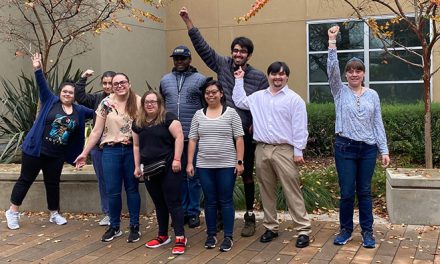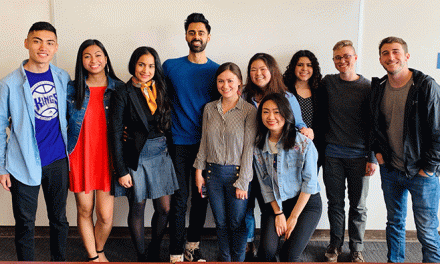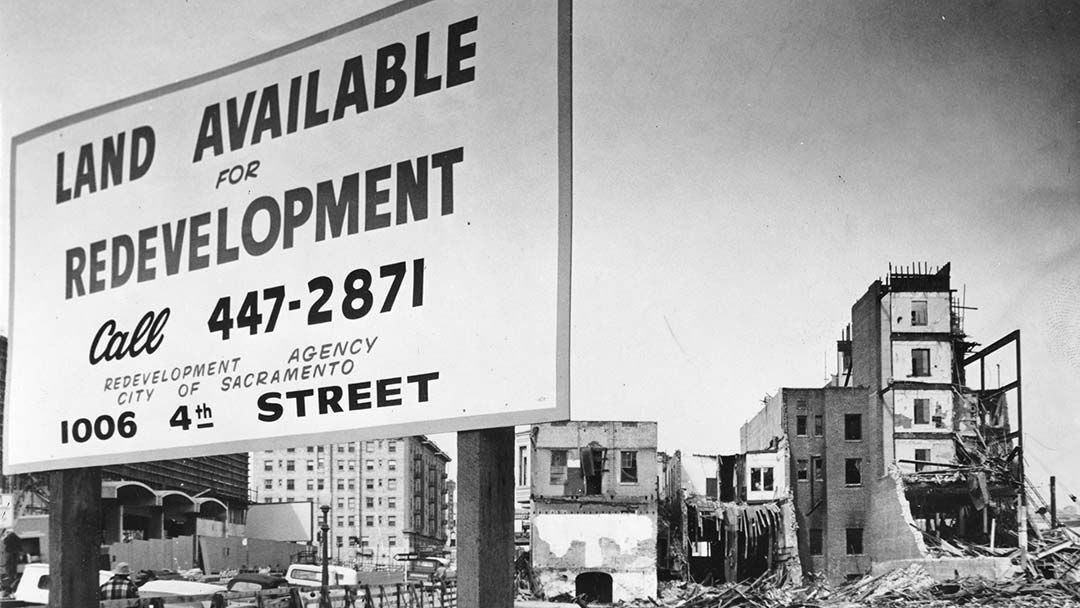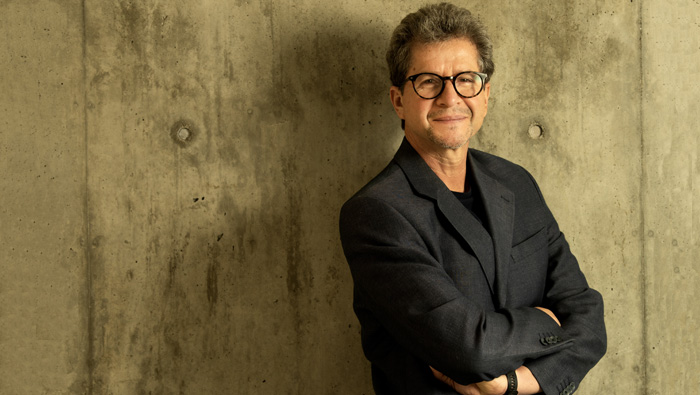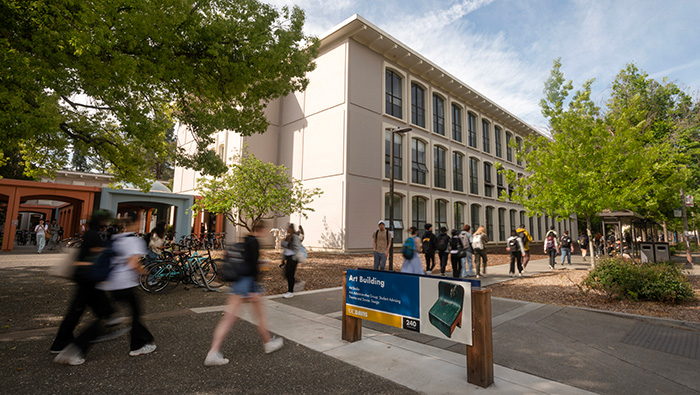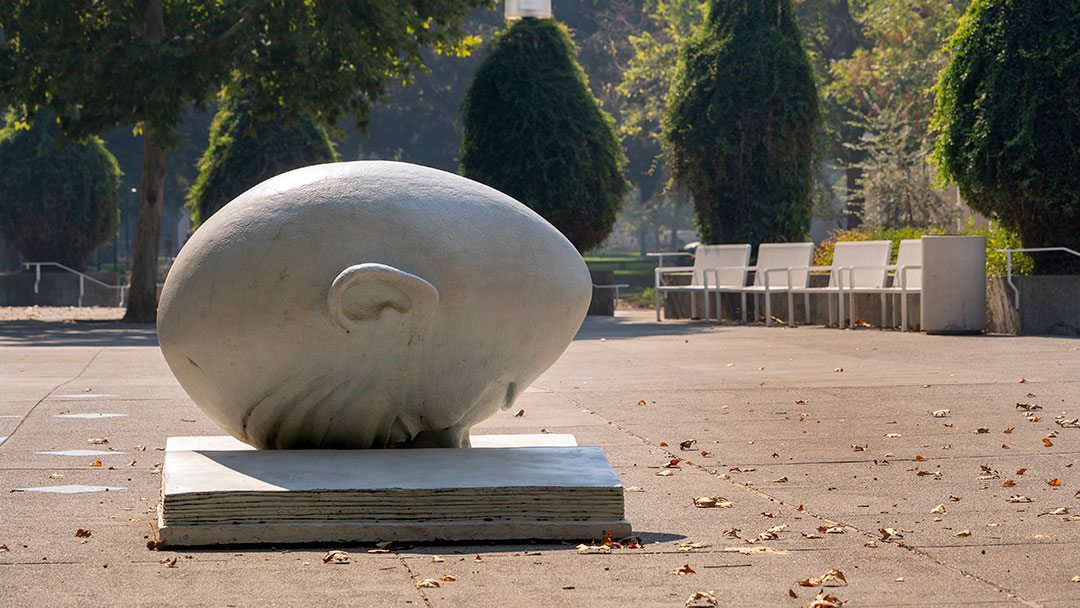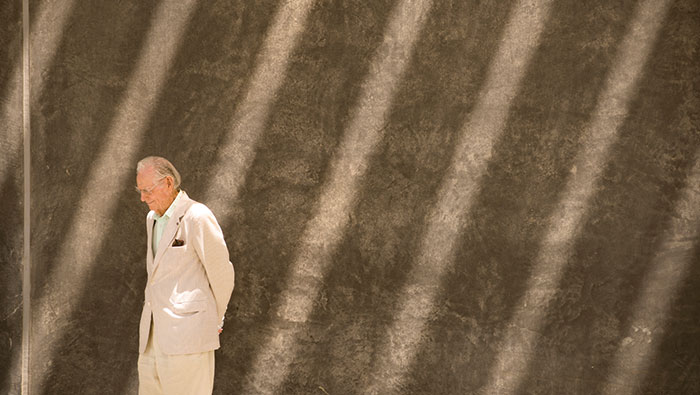
Wayne Thiebaud
Photo: Gregory Urquiaga/UC Davis
Manetti Shrem Museum to Feature Wayne Thiebaud’s Early Works
When Wayne Thiebaud first started teaching at UC Davis in the mid-20th century, he never dreamed there would be an art museum on campus. At that time, Thiebaud and his colleagues taught and made art on campus in whatever spaces were available, including the still-in-use TB-9.
The artists hired by founding art department chair Richard Nelson — among them Thiebaud, Robert Arneson, William Wiley, Roland Petersen, Roy De Forest and Manuel Neri — exchanged art among themselves and exhibited at various museums, galleries and other venues in the United States.
“I had imagined that we would get a Quonset hut way back in the sticks and that no one would ever come,” Thiebaud said jokingly in an interview conducted as construction of the Jan Shrem and Maria Manetti Shrem Museum of Art was nearly complete in 2016. “So this is a terrific joy.”
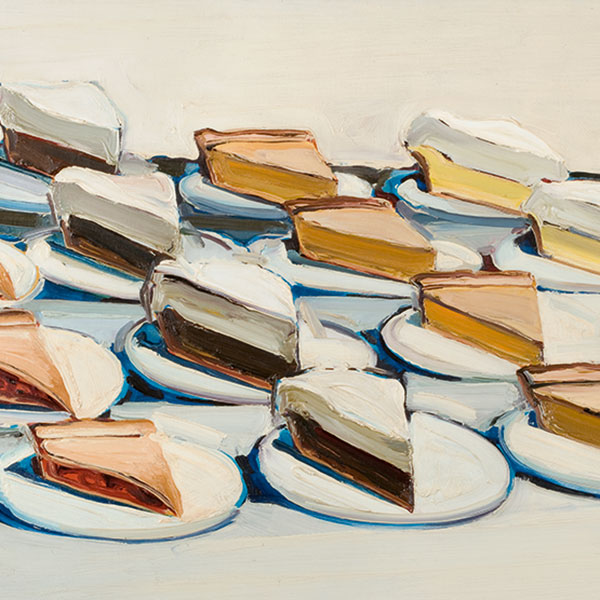
Wayne Thiebaud. Pies, 1961. Private collection. (Douglas Sandberg | art © Wayne Thiebaud/Licensed by VAGA, New York)
Next up, the museum will unveil an expansive exhibition, Wayne Thiebaud: 1958-1968. The show opens Jan. 16.
This exhibition of works from a pivotal period in the artist’s life brings together for the first time more than 60 celebrated paintings gathered from private collections and museums throughout the United States. Thiebaud joined the UC Davis faculty in 1960, when he began transitioning from the impressionistic style of his early period toward the representational paintings for which he became widely known.
In conjunction with the exhibition, UC Press will publish a catalog with new scholarship on Thiebaud’s life and work, as well as press clippings and photographs from this period of his career.
Museum founding director and curator of the exhibition Rachel Teagle explained, “This exhibition is the first to explore a specific period of Thiebaud’s career, inviting viewers to return to the beginning, to see the artist anew, with an understanding of the explosive moment in art history when his signature style emerged.”

